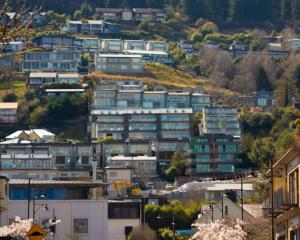Nearly half of young Kiwis believe they won't own a home by the time they retire, and most want the Government to force them to save more during their working life, research shows.
A survey of 18- to 34-year-olds has revealed that just 54% expect to own their own home by retirement, while only 30% believe they will still get the Government pension - New Zealand Superannuation.
Instead, the most widely held asset young people expect to have at retirement is KiwiSaver, with 67% expecting to be in the scheme and to have an average balance of more than $200,000 when they stop working.
Richard Klipin, chief executive of the Financial Services Council - the industry body for investment companies, including KiwiSaver providers, which carried out the research - said it showed a significant change in the way Kiwis were preparing for retirement.
"It's clear that millennials are going to be generation KiwiSaver. Owning a house and relying on New Zealand Superannuation are options younger New Zealanders simply aren't counting on," said Klipin.
"This is a significant change from previous generations where a 'she'll be right' attitude and owning a mortgage-free home was the extent of retirement planning for many."
Today, about 75% of over-65s own their own home, and about 40% rely entirely on New Zealand Super to live off.
While there are no suggestions that New Zealand Super is going to be taken away, there is mounting pressure on the Government to increase the age of eligibility for the pension, as the cost rises along with the ageing of New Zealand's population.
Prime Minister Jacinda Ardern has promised not to lift the age under her tenure but the previous National Government had planned to increase it from 65 to 67 over a long time.
Despite this, today's young people believe they will be self-funding their own retirement, with 29% of 25- to 34-year-olds expecting to cash up KiwiSaver at retirement and a further 29% expecting to draw a regular lump sum from it.
Another 40% plan to move into a smaller home to free up cash.
The research found young people believe they are likely to need $754 a week to live off in retirement - slightly more than the working age population as a whole.
But comparing the retirement income younger people expect to need, and the amount they expect to receive, there was likely to be a $205 weekly shortfall.
More than half the young people surveyed were worried they would not have enough weekly income to live comfortably when they retire.
Uncertainty about the future was a big reason under-35s gave for their worry.
"I'm unsure what the Government super allowance will be and retirement age," said one young woman from the Hawke's Bay.
Inflation and housing were a concern for another. "Housing costs mean this generation will already be set behind, not able to build up a nest egg from a young age," was the comment from a young Auckland woman.
Klipin said that concern was behind an overwhelming number of under-35s who wanted the law changed so the minimum contribution to KiwiSaver was lifted gradually.
The minimum is now 3% of an employee's wage and 3% from their employer.
But 61% of 18- to 25-year-olds and 68% of 25- to 34-year-olds supported an increase to 4% by 2021.
Klipin said the research was a wake-up call for politicians about the need to keep on strengthening KiwiSaver.
He said there should be a national conversation about how much people needed to be saving for their retirement.
"These are conversations that are happening at home but they need to be happening on the national stage."
While the issue might not be as important as rampant house price growth and how to enable people to own their own home, it was still a generational issue.
Klipin said if New Zealand did nothing, there was a risk that people would not be in the position they should be by the time they retire.












